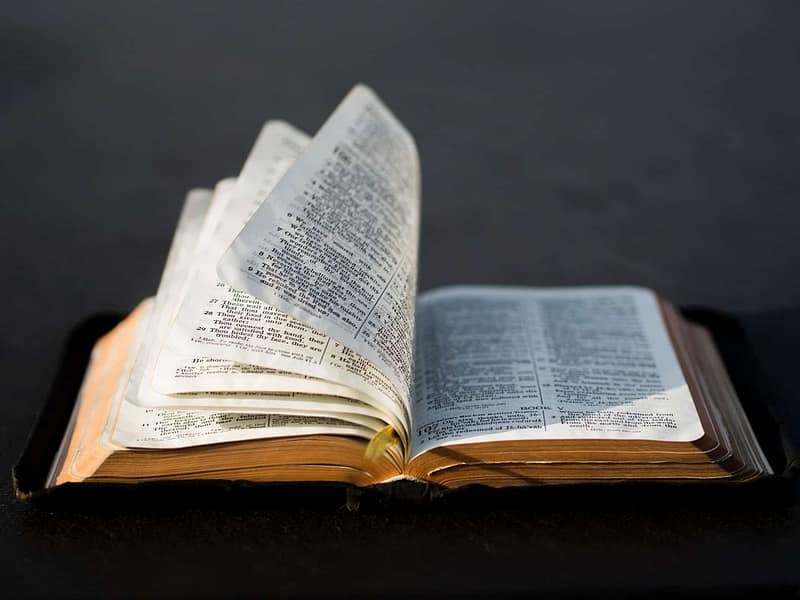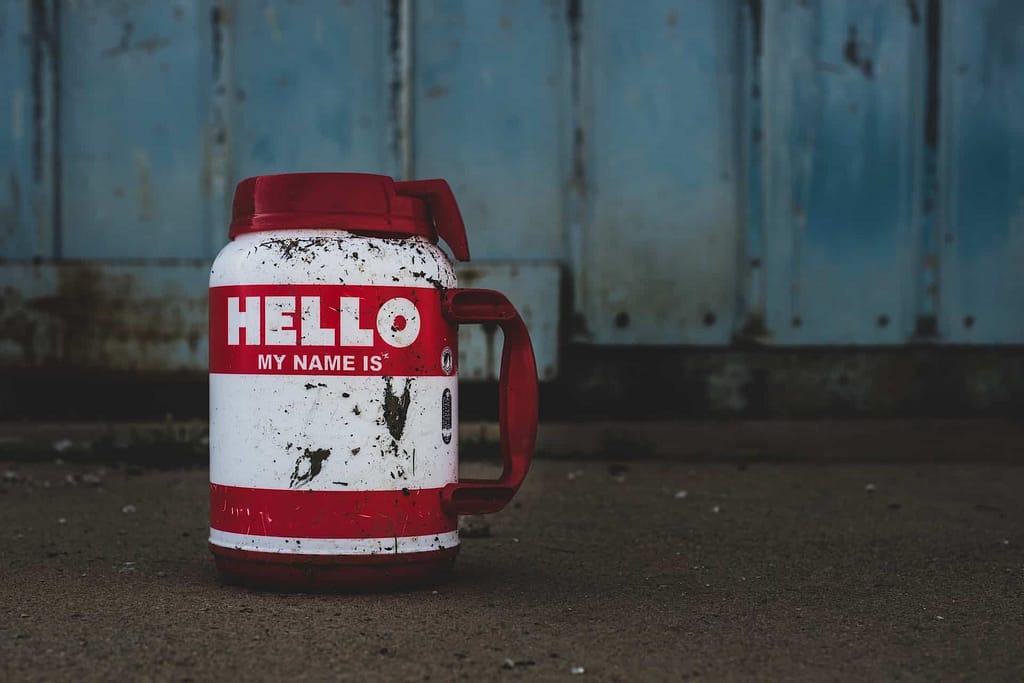The night my daughter was born, I had a little problem. I hadn’t prepared a name yet, so I had to come up with one almost instantly for this beautiful child that lay in my hands, squinting, not yet used to the world where she had just arrived. Thankfully, I had already carried out a bit of research on naming conventions and practices in Nigeria, so it made the task a little easier. Nevertheless, while I wanted to follow these conventions, I still wanted something different from the norm. But what is the norm?
Names in Nigeria fall into several broad categories, the most observable being: religious names, historio-cultural names, modern names, transcoded names, and neologisms.
RELIGIOUS NAMES
Nigerians are some of the most religious people anywhere on the planet. (Nigeria has the largest Christian and Muslim population in Africa and top fifth and sixth largest in the world for Muslim and Christian populations respectively.) Hence, it is not surprising that religious names are very common. In Nigeria, religion falls into three categories: Christianity, Islam and the pre-colonial traditional religions.
It is widely known that northern Nigeria is predominantly Muslim, while southern Nigeria is mostly Christian. Still, many Nigerians retain their traditional religious beliefs and practices, and many of these traditional beliefs and practices have even been assimilated into the two dominant religions.
For instance, the names of some of the gods in Odinaala (Ọ̀dị̀nàlà), the pan-Igbo traditional religion, have been used to replace the names of certain Christian divine beings. “Chukwu” (“chukwuokikeabiama” or sometimes simply “chi”) being the Igbo supreme deity is used as the Igbo name for the Christian God (Igbos are mostly Christians). Accordingly, Igbo names often contain “chukwu” or “chi”.
“”Chukwu” (“chukwuokikeabiama” or sometimes simply “chi”) being the Igbo supreme deity is used as the Igbo name for the Christian God”
Chinedum Art Michael
Tweet
These theophoric names extol or describe the attributes of God. So, Chukwuemeka (God has performed exceptionally), Chioma (beautiful God), Amarachi (God’s grace) are all religious names. Furthermore, Igbos still bear names derived directly from Odinaala, names such as Kalu (Kanu or Kamalu), Igwe, Anyanwu, Njoku, etc, which are names of deities in Odinaala.
Religious names are exceptionally popular in north. Muhammed, Musa, Ibrahim, Adamu, Abdul, Umaru, Ahmed, etc are quintessential Nigerian Muslim names (every Nigerian probably knows someone who bears any of these names). Conversely Christian names such as Mary, Joseph, Paul (you know, Bible names), or their derivatives such as Johnson, Josephine, etc are quite common among southerners. Ancient Roman (or Greek) names such as Augustus, Sixtus, Theophilus, etc are popular among southern Catholics as well, especially the Igbos. Other ethnicities in Nigeria might seem less zealous about theophoric names; nevertheless, names derived from “oluwa” (Yoruba) “tamuno” or “tamara” (Ijaw), “abasi” (Ibibio), “oghene” (Urhobo), “osa” (Bini) etc are fairly common.

HISTORIO-CULTURAL NAMES
These are names derived from the indigenous socio-cultural context and historical narratives of the ethnicities in Nigeria. In other words, these are the indigenous names Nigerians bear, excluding those names linked to religion. They are derived from everyday life, traditional practices, names of historical figures, market days, festivals, arts and crafts, etc. These names are often meaningful, as Nigerians generally believe that names have a measure of auspiciousness to them.
“They [names] are derived from everyday life, traditional practices, names of historical figures, market days, festivals, arts and crafts, etc. These names are often meaningful”
Chinedum Art Michael
Tweet
Modern globalised culture has done nothing to sway this belief; on the other hand, many Nigerians have begun rejecting names with negative meanings due to their perceived inauspicious nature.
Expectedly, this category of names is the most dominant in most cultures in Nigeria (perhaps excluding the Igbos, who seem to have a special thing for “chi” names). These names are quite common among the Yoruba. Don’t Yorubas just love Yoruba names! The longer and more complicated, the better, eh? Giving that Portuguese vibe. I mean, what do you make of Majekodunmi Fasheke (the phenomenal singer Majek Fashek), or of the legendary Olufela Olusegun Oludotun Anikulapo Kuti (Fela Kuti)? Doesn’t the name of Africa’s first Nobel Laureate, Akinwande Oluwole Babatunde Soyinka, tell you just how grey haired the man is?
Bini (Benin, in Edo state) names are no less awesome. Names such as Irimwiagbon, Omoroghomwen, Odemwingie, Eghenayarhiore, etc could give you the chills just trying to pronounce them. This is not to say that there aren’t many shorter Yoruba and Bini names, but where’s the fun in them? If you’re going to give a name, you should as well give a big one, shouldn’t you? What’s important is that each name bears a meaning that shows the parents put some thought into naming their child.
MODERN NAMES
What names are most popular today? Kim Kardashian. Justin Bieber. Jason Derulo, Oprah Winfrey, Jennifer Lopez, Angelina Jolie. These are some of the America’s most prominent media personalities. Nigerians happen to be avid consumers of American media and entertainment, thus American culture has inevitably influenced the modern Nigerian.
As a result, many Nigerians today find modern American names to be trendy. Abasiofon? No thanks. We’ll go with Albert. Mgbeorie for your daughter? Why not just call her Tinashe? It’ll sound to her classmates like your daughter spent her first six years in Atlanta, Georgia. Never mind if she has never been outside Owerri, Imo State; it all works.
Indeed, one can observe that the younger generation (millennials) come with these foreign names. The trend of modern names is particularly vibrant in southern Nigeria, especially the south east but mostly the south south.
While Igbos would usually add the modern name to a traditional last name (or vice versa in my own case), it is common to find an Ijaw person named Edwin Clarke, Stanley Briggs or Goodluck Jonathan. To many Nigerians in the diaspora, however, the trend can be vice versa; these ones would rather have very indigenous names (consider a Bukayo Saka) than the modern foreign names. Moreover, even at home, many Nigerians have begun to insist on bearing “meaningful” names, rather than be called Sandra Heineken. This brings us to the next category.
TRANSCODED NAMES
Foreign names don’t typically bother with meaning. Declan Rice and Danny Drinkwater aren’t particularly concerned that their names are dining table phrases, and George Bush is definitely not a bushman. Thus, in a bid to make a foreign name meaningful, Nigerians can create their own foreign names. Goodness, Praisegod, I’m-blessed, etc are all creative examples of names in a non-indigenous language (English), with meaning. Typically, these are borne by southerners, especially those in the south east and south south of Nigeria.
“…Nigerians can create their own foreign names. Goodness, Praisegod, I’m-blessed, etc are all creative examples of names in a non-indigenous language (English), with meaning.”
Chinedum Art Michael
Tweet
Apparently, many of these names are derived from indigenous names. “Edidiong” is an Ibibio name that means “blessings”, so if you ever meet an Ibibio lady named Blessing, you know the drill. You want your child to grow up to become virtuous? Why not choose the name of a virtue? Happiness, Love, Courage, Peace, Gift, Ability, Reward, Faith, Confidence, Immaculate, etc are all common Nigerian “foreign” names. While English speaking British and Americans may not bear these names, they’re foreign enough to sound trendy, but also meaningful enough to bring good fortune.
NEOLOGISMS
I once approached a bridesmaid at a wedding, and asked her name.
“Ziti”, she said.
“City?” I asked. “As in Manchester City?”.
“No!” she fumed. “My name is Ziti”.
Okay, that was quite the name if I ever heard one. Inquiring deeper though, I got to know her full name was “Chizitere”, an Igbo name that means “Godsent”. Normally, people would shorten the name to “Chizzy”. But not her. She’s bolder than that. Why have Chizzy when you can have Ziti? And so she successfully made up a name that had never existed before. Brava!
“I once approached a bridesmaid at a wedding, and asked her name.
“Ziti”, she said.
“City?” I asked. “As in Manchester City?”.
“No!” she fumed. “My name is Ziti”. ”Chinedum Art Michael
Tweet
Well, to be fair, every name existing today was once made up by someone. So, Nigerians have kicked off a new movement of building their own names from something (as in “Ziti” from “Chizetere” or “Kiki” from “Kitoye”) or from absolutely nothing (no example comes to mind). These names are often used informally, much like a nickname. So while a person might be fondly called Zaza, her official documents would still read “Chizaram”.
Another way of creating a new name is by altering the spellings or pronunciation. Ever heard of Hilda Baci? That’s Hilda Bassey (an Efik/Ibibio name that is also probably coined from “Abasi”). What of the Nigerian politician changing “Nwagbara” to “Wabara”? In many cases, these names are used even for official purposes by the bearers, as they retain a close enough semblance to the original to be considered bona-fide names.
Going through these categories, I thought to go the normal Igbo route for my daughter. A foreign first name, Lily, and an Igbo middle name, Chisom (God is with me) – a very common convention nowadays. However, my last name is a Biblical name, and that makes my daughter’s name feel like the task of English whiskey with a generous brew of local palmwine. But I’m not too concerned about that. It’s just a name, isn’t it?
Chinedum Art Michael is an academic consultant and educational researcher. You can inquire about his services here.



